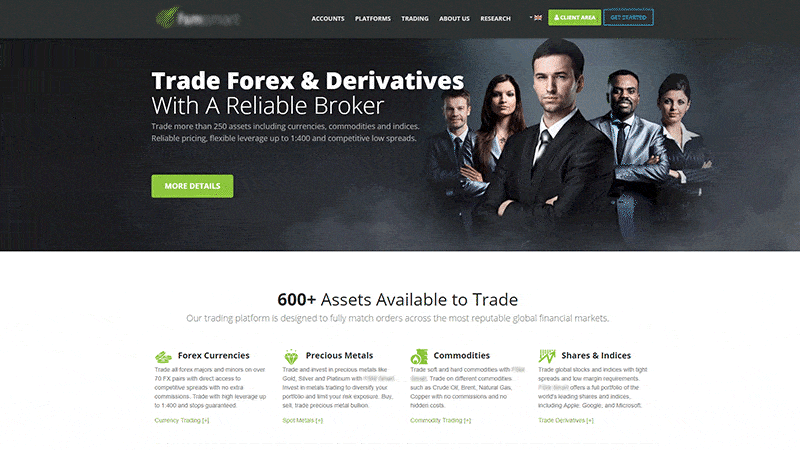Fraudulent on-line trading platforms
Fraudulent on-line trading platforms are becoming increasingly sophisticated, making them particularly difficult to detect. They often masquerade as legitimate investment opportunities promising quick, substantial gains. Fortunately, there are some simple and effective ways to recognize and protect yourself against them.
What are fraudulent on-line trading platforms?

Fraudulent on-line trading platforms often resemble legitimate platforms, but their sole goal is to get money out of you. Investors can be easily misled by these sites, because they are well-designed and are often very professional looking.
The fraudsters that operate these platforms are usually very convincing in their roles as courteous, well-informed advisers. They are often very active on social media platforms. Some of them will even use the names of individuals listed in the AMF register of firms and individuals authorized to practise and will refer you to the register so you can check it.
In many cases, such platforms are managed from abroad, including from places in Southeast Asia, and the people who contact you are, in many cases, working in call centres called boiler rooms. Sometimes, the minds behind these platforms claim to have offices in reputable locations, like London or Switzerland, so as to appear more legitimate. Getting your money back can be very difficult, if not impossible.
Validate the identity of the person presenting themselves to you as an adviser
To make sure the person you’re communicating with is who they say they are, always use the contact information from the register rather than trusting information provided to you by other means.
End of the insightHow to recognize a fraudulent investment platform
The types of products offered on fraudulent platforms change to reflect the latest trends and tend to be the ones generating the most interest in traditional and/or social media. In addition to capitalizing on the cryptoasset craze to target investors, the fraudsters may also offer a wide range of financial products, including currency (forex) and shares.
It can sometimes be difficult to spot a fraudulent trading platform, because they are well-designed, look polished and appear credible.
Here is one example:

Well-designed, polished and professional-looking website
Access to known on-line trading tools like MetaTrader
Offers known financial products; changes quickly to reflect trends
Using Interac e-Transfer or a credit card to invest IS NOT recommended
Did you know?
In 2024, the AMF received more than 1,300 reports from members of the public about fraudulent investment sites and added 255 fraudulent platforms to its Investor warnings list.
Here are some red flags to help you identify this type of investment fraud.
The person who contacts you may do things like:
- try to quickly win your trust by talking with you about anything and everything
- be insistent and pressure you to let them help you open an account by, for example, allowing them to access your computer remotely
- promise you very high returns
- ask you to deposit money on the platform via Interac e-Transfer, by credit card or in crypto
- encourage you to make a small initial investment and then to subsequently increase the amount
- invent all kinds of excuses (taxes, system failures or updates, poor returns) to prevent you from withdrawing your money, then vanish into thin air
How to prevent fraud by fraudulent on-line trading platforms
Always
- Make sure that the platform is registered with the AMF and the name of the person presenting themselves as an adviser is listed in the register of firms and individuals authorized to practise, and that their phone number and civic address match the ones in the register
- If you have doubts about an investment platform, cryptoasset trading platform or adviser, seek the AMF’s opinion
- Check our Investor warnings about websites and companies that solicit investors illegally
- Be wary of promises of high returns on low-risk investments
- Research the investment product that is being offered to you
Not recommended
- Making an investment using a credit card or Interac e-Transfer
Never
- Send anyone you don’t know money based on an unsolicited call or e-mail
- Make a hasty decision or decide anything under pressure
- Give out sensitive personal information, such as banking information, your driver’s licence number or utility bill details
- Let anyone take control of your computer, especially someone who you don’t know who claims to want to help you invest
- Invest with someone who isn’t registered with the AMF
- Transfer your investments from one platform to a platform that is not registered with the AMF or does not have a place of business in Canada
What to do in the event of fraud
Anyone can be a victim of fraud, so don’t beat yourself up. Fraudulent on-line trading platforms seem credible, so it's increasingly difficult to detect them.
-
Refer to the You're a victim of fraud? page to find out what to do, and contact the AMF if the fraud involves purported investments.
-
Break off all communications with the person or persons involved and stop sending money.
